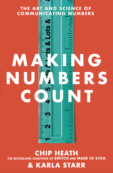It’s a surprising fact, a fact that warns of overpopulation and a world teetering on the edge of exhaustion: The number of people alive today outnumber all those who have ever lived.
And it’s dead wrong. Ciara Curtin in the Scientific American does a nice dismantling of this urban legend.
Why did this falsehood spread? It has the snap of unexpectedness that you find in a lot of scientific-ish urban legends. (You only use 10% of your brain!) It balances that surprise factor by tapping into our sense of concern and anxiety for the world. (Have we pushed the planet too far?)
The surprise value and emotional resonance are garden-variety strengths of urban legends. This legend has another tricky feature, though. It appeals to our intuition about exponential numbers — for instance, if you take a sequence like 3^2, 3^3, 3^4, …, each successive number is greater than the sum of all the numbers before it in the sequence. If we have the (mistaken) sense that the earth’s population works like this sequence, the urban legend would seem quite reasonable. (It might even, perversely, make us feel smarter to believe it than not to believe it, since in tracing the exponential logic in our heads, we might flatter ourselves to believe we had solved the logic puzzle that explained a surprising “finding.”)



